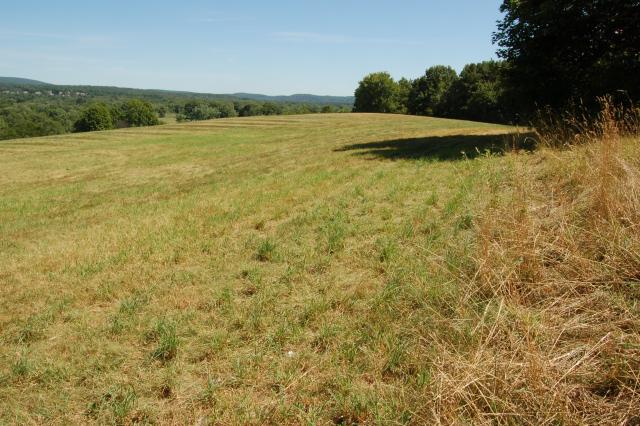

The Amherst College Farm, initiated to be an educational resource as well as to provide fresh, organic, local produce for Valentine Dining Hall, is currently under development. On Monday, the College finished accepting applications for an experienced farmer to run the 4.5-acre operation, said Alex Propp ’13, one of the students involved in bringing the idea of a farm to fruition. By the end of the semester, the College will have chosen a farmer, and then by the spring they will be growing and harvesting vegetables. The farm is located in the southeast corner of campus, past the tennis courts.
The idea of having a farm on campus originated from Propp and Arnie Andersen ’13 during their sophomore year of college. They, along with Maddy Sprung Keiser ’13 and Deidre Nelms ’13, wrote a 25-page proposal to then-Amherst College president Tony Marx, outlining why they believed a farm would be beneficial for the college.
“We had what seemed like a really positive [meeting] with Tony Marx,” Propp said. “He listened to us and seemed interested in our proposal. But three days later he told us that it wasn’t going to happen.”
A year later, the students wrote another proposal to President Carolyn “Biddy” Martin, who within a couple of months accepted the proposal.
The farm will be on College land, but profits made by selling produce will not go to the College, Andersen said. Instead, the College will work out a separate deal with the farmer.
“We will give him the land and the equipment needed to run a farm, and in exchange he will be both an educator and a farmer,” Andersen said. “The farmer, at least in the beginning, will sell most of the produce he grows to Valentine.”
According to Dining Services Director Charlie Thompson, Valentine is committed to sustainability and local, organic produce. During the growing season 60 percent—80 percent of all produce used by Valentine is local, and during the off-season 6 percent—8 percent is local.
“A campus farm really fits the bill of what we are trying to do here at Valentine,” Thompson said.
Valentine would be able to buy from the farmer nearly all the produce that they grow.
“We use such a great variety and quantity of items that I can’t imagine that we couldn’t find a use for whatever they planted,” Thompson said.
In addition to providing fresh food for the dining hall, the farm would also serve as a means of education.
“There are a variety of things we could do to utilize the farm for teaching,” Propp said. “Bio professors could investigate it to see soil composition. Seniors could potentially use it for their theses. Classes could take field trips.”
Depending on funding, the farm could as many as ten Amherst College interns to work with the farmer, both during the summer and the school year, said Monica Cesinger ’15, a member of the student group working on developing the farm.
According to Propp and Andersen, the goal of the farm is not only to provide educational opportunities and fresh produce for Valentine, but to help lead a culture shift at Amherst College, especially in terms of how the student body views sustainability.
“Amherst excels operationally in terms of being green by doing things like building eco-friendly buildings and having energy efficient light bulbs,” Propp said. “However, there hasn’t been a lot of energy spent to encourage students to do their part and help reduce their carbon footprint. Hopefully having a farm on campus could lead in a change of mindset.”
I'm glad to see that fresh, ultra-locally grown produce will be available in Val. But I do think the college is missing a vital step in an exercise in real sustainability education. There should not only be some educational or internship opportunities for students related to the farm, but rather, students could actually work the farm for either pay or academic credit. Considering how many of the faculty likely shop at Whole Foods (the faux-sustainability market) the college could make more of a statement about the reality of work required to produce the food we eat, not only a green fashion statement. While such "vocational" activity flies in the face Amherst's tradition of a life of the mind, I think it is time that the college begins to integrate such experiential practices into its curriculum.